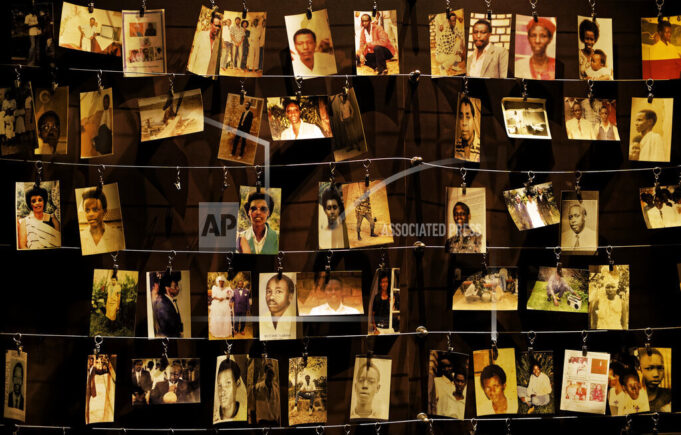America recently celebrated its independence on July 4. Very few are aware that the 4th of July also has special significance for the people of Rwanda. For that African nation, July 4 is “Liberation Day,” the day when Rwanda annually recognizes the end of the horrific Rwandan genocide that in a three-month span claimed over 800,000 lives. Between April 6 and July 4, 1994, Hutu extremists slaughtered every Tutsi and moderate Hutu they could find—men, women, and children.

The Rwandan massacre has special significance to the U.S. According to London-based publication the Guardian, “President Bill Clinton’s administration knew Rwanda was being engulfed by genocide in April 1994 but buried the information to justify its inaction, according to classified documents made available for the first time.”
In fact, in an article written by Samantha Power titled, “Bystanders of Genocide,” in the September 2001 Atlantic Magazine, she states: “In March of 1998, on a visit to Rwanda, President Clinton issued what would later be known as the ‘Clinton apology,’ which was actually a carefully hedged acknowledgment.
He spoke to the crowd assembled on the tarmac at Kigali Airport: ‘We come here today partly in recognition of the fact that we in the United States and the world community did not do as much as we could have and should have done to try to limit what occurred’ in Rwanda.” Ms. Power is a former U.S. Ambassador to the United Nations and currently serves as administrator of the United States Agency for International Development (USAID).
While the president gripped the lectern with both hands and looked across the dais at the Rwandan officials and survivors who surrounded him, he added, ”It may seem strange to you here, especially the many of you who lost members of your family, but all over the world there were people like me sitting in offices, day after day after day, who did not fully appreciate the depth and the speed with which you were being engulfed by this unimaginable terror.”
This obfuscation, this obscure observation of what Clinton actually knew came to light as the result of intelligence reports obtained using the U.S. Freedom of Information Act. They revealed the Clinton administration had been told of a planned “final solution to eliminate all Tutsis” before the slaughter reached its peak.
The documents undermined claims by Clinton and his senior officials that they did not fully appreciate the scale and speed of the killings. “It’s powerful proof that they knew,” said Alison des Forges, a Human Rights Watch researcher and authority on the Rwandan genocide.
Adding insult to injury, Power wrote—utilizing U.S. documents from National Security Archives—that the United States did much more than they led the American public to believe. “It reveals that the U.S. government knew enough about the genocide early on to save lives, but passed up countless opportunities to intervene,” she wrote.
Power noted that Clinton’s remarks implied that the U.S. did “a good deal but not enough.” In fact, the U.S. “led a successful effort to remove most of the UN Peacekeepers who were already in Rwanda.” In addition, she wrote: “It (U.S.) aggressively worked to block the subsequent authorization of UN reinforcements. It refused to use its technology to jam radio broadcasts that were a crucial instrument in the coordination and perpetuation of the genocide.
“And even as, on average, 8,000 Rwandans were being butchered each day, U.S. officials shunned the term ‘genocide,’ for fear of being obligated to act. The United States in fact did virtually nothing ‘to try to limit what occurred.’ Indeed, staying out of Rwanda was an explicit U.S. policy objective.”
Add to that, according to ForeignPolicy.com was Richard Clarke and Susan Rice. Clarke had a seat at the White House National Security Council and Rice was Assistant Secretary of State for African Affairs. Powers criticized Rice’s response to the 1994 genocide in Rwanda during her first years in the Clinton administration.
Power wrote that Rice, appeared to be more preoccupied with the domestic political ramifications of the tragedy than with stopping the violence. Rice “wondered on a conference call how the use of the word genocide would affect the November elections if the U.S. failed to intervene,” noted Power.
Former UN Secretary-General Boutros Boutros-Ghali stated, “The failure of Rwanda is 10 times greater than the failure of Yugoslavia. Because in Yugoslavia the international community was interested, was involved. In Rwanda, nobody was interested.”
Follow @JehronMuhammad on Twitter













